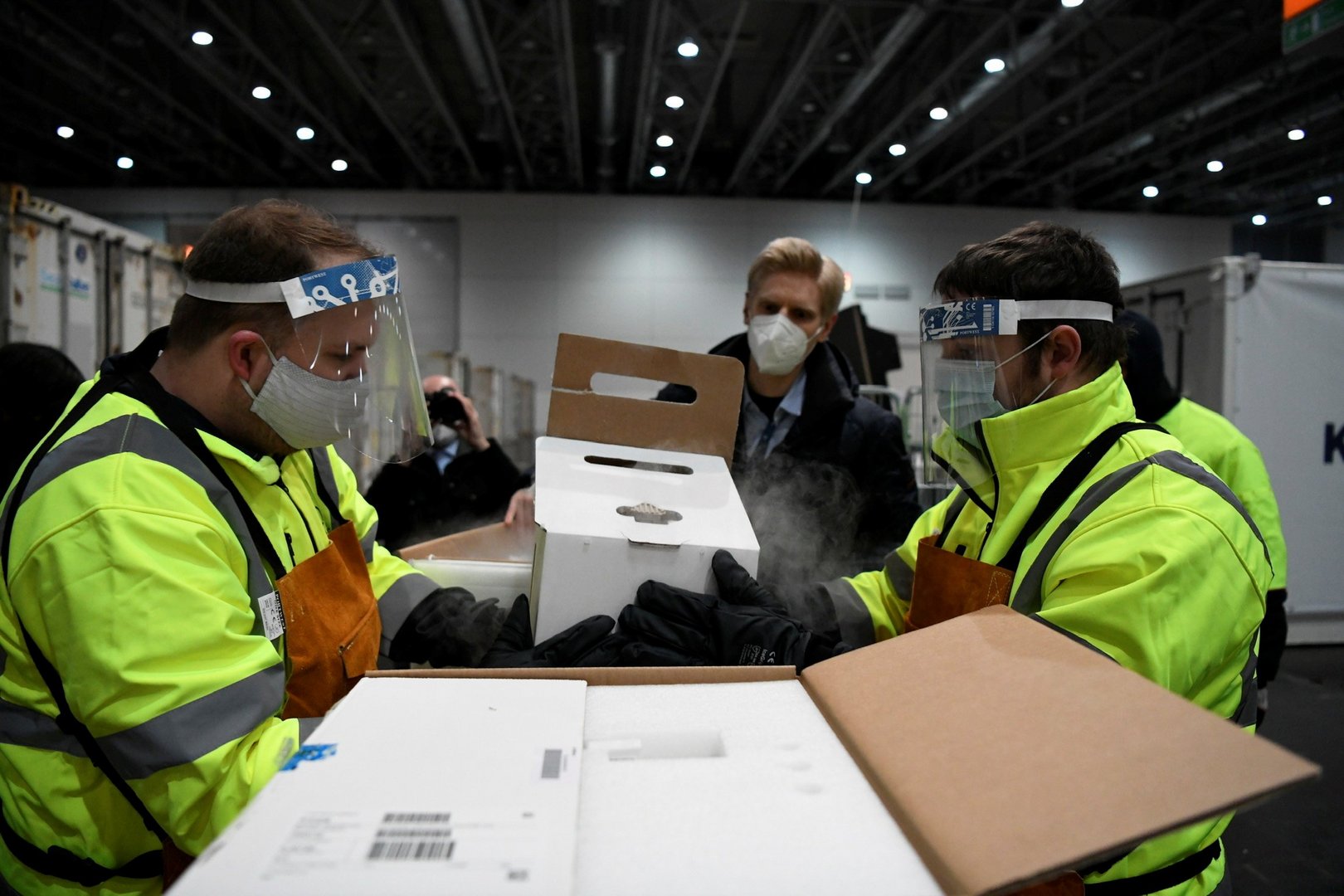Germany’s health ministry is seeking advice on whether to delay administering a second dose of the COVID-19 vaccine from BioNTech and Pfizer to make scarce supplies go further, according to a document seen by Reuters on Monday.
The ministry is seeking the view of an independent vaccination commission on whether to delay a second shot beyond a 42-day maximum now foreseen, after a similar move by Britain, according to the one-page document.
The update, dated Sunday, follows widespread criticism over the weekend of Health Minister Jens Spahn – including from his conservative political allies – that Germany has failed to procure enough vaccine and been too slow to ramp up a nationwide inoculation campaign.
According to the latest daily update from the Robert Koch Institute, Germany has vaccinated around 239,000 people since starting its campaign on Dec. 27 – short of the 1.3 million doses that were delivered by the end of 2020.
Britain’s move to delay administering a second dose of the BioNTech/Pfizer shot has been welcomed by a number of German health experts and comes as governments try to provide protection against coronavirus to as many people as possible by giving them one shot as soon as possible and delaying a second.
Other points in the health ministry document include recommending that an extra, sixth dose be drawn from vials of the BioNTech/Pfizer vaccine – a practice the companies say is feasible with the right needle and syringe and has been allowed in several countries.
European Union approval for a vaccine from Moderna, expected on Wednesday, should add another 1.5 million doses of supply in the coming weeks, it also said. In total, Germany should get 50 million doses of the Moderna shot this year under EU-wide procurement contracts.
Regarding the AstraZeneca vaccine approved last week in the United Kingdom, the German Health Minister said the European Medicines Agency’s (EMA) rolling review was proceeding at “high pressure”.
“The goal is, as soon as possible, to decide on the way forward and on the scope of approval” for the AstraZeneca vaccine, the document said.
France, which has a strong anti-vaccination movement, started its inoculation campaign at the end of December, as did many other European countries.
But it has only vaccinated hundreds since then, versus tens of thousands in Germany and more a million in Britain, which on Monday became the first country to roll out the Oxford/AstraZeneca shot.
“I think that the Moderna vaccine ought to arrive this week,” Dominique Le Guludec, head of the Haute Autorite de Sante (HAS), told BFM TV, adding that France wanted more information on the AstraZeneca shot.
The United States authorised Moderna’s vaccine on Dec. 19, Canada did so on Dec. 23 and the EU’s watchdog is expected to approve it this week.
Epidemiologist and government scientific adviser Arnaud Fontanet told France Info radio that France needed to speed up its vaccine rollout and that the spread of the virus in France was too high for the government to ease restrictions.
France has the seventh-highest COVID-19 casualty toll in the world, with more than 65,000 deaths.
President Emmanuel Macron said in his New Year’s Eve speech that everyone in France should be able to get a COVID-19 vaccine if they wanted it.







Click here to change your cookie preferences